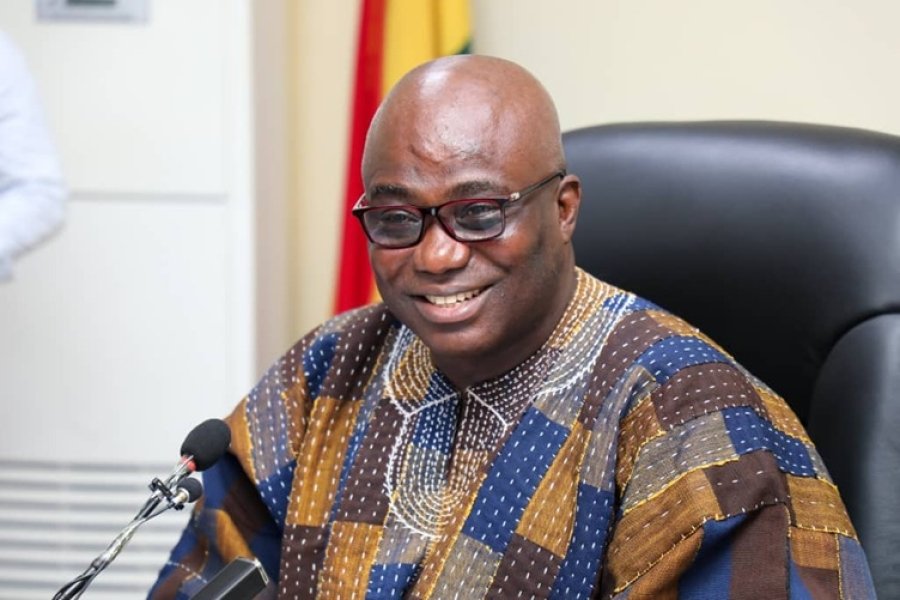The Minister of Food and Agriculture, Eric Opoku, has revealed that the John Mahama government’s flagship project, the ‘Nkoko Nkitinkiti‘, will cost Ghana approximately GHS 200 million.
He detailed that three million birds will be procured under the government ‘nkoko nkitinkiti’.
According to the Agric Minister, each constituency will receive 10,000 birds.
Speaking on Hot Issues with Keminni Amanor on Sunday, September 28, 2025, Minister for Food and Agriculture Eric Opoku stated, “ We are procuring 3 million birds; each constituency will receive 10,000. This will not cost Ghana beyond GHS 200 million”.
The Agric Minister revealed that an additional 80,000 birds will be supplied to 50 existing commercial-scale farmers, with medium-scale farmers receiving between 1,000 and 3,000 birds each.
Eric Opoku revealed that Ghana imports more than 80% of its poultry needs, which is unsustainable.
“Ghana consumes a lot of poultry compared to a country like Nigeria. With this initiative, we can change the narrative and stop excessive importation,” Eric Opoku stated.
Still on the project, President John Dramani Mahama has shared details of the Nkokɔ nkitinkiti’ project set to be launched next month.
According to John Mahama, young entrepreneurs and households will form the third group of the Nkokɔ nkitinkiti’ project with full support from the government to set up and run small-scale poultry farms.
Speaking during a visit to the National Service Authority Papao Farms in Accra on Friday, September 12, John Mahama explained, “Next month we’re going to launch the Nkokɔ Nkitinkiti project. It is going to have three layers. The first will be the large-scale producers. They are going to get about 4 million day-old chicks. The second will be the medium-scale producers. They’ll get about 3 million day-old chicks”.
“Every household, every young entrepreneur who signs up, you identify your site, your chicken house and then we’ll give you the day-old chicks, and we’ll also supply you with the feed. We’ll also vaccinate the day-old chicks for you,” he said.
“So yours is just to feed them and let them grow. And after the chickens are grown, we will come to your farm and buy all the chickens from you and give you your next set of day-old chicks,” Mahama assured.
President Mahama further revealed that a large-scale production will be established in multiple regions.
“And so we’re going to build processing plants in different parts of the country. And the first processing plant is going through procurement. And once the procurement authority approves it, we’ll start to construct it,” he said.
“Other parts of the country would also have processing plants. So when we buy the chicks off you, we’ll take them to the processing plants. We’ll process the chickens and package them nicely with Nkokɔ Nkitinkiti brand on them.”
“This will help us to cut our huge poultry import bill. We should be able to produce enough poultry to feed the whole of Ghana,” President Mahama emphasised.
President Mahama also announced plans that Ghana will be producing 100 per cent of the chicken Ghanaians consume in three years once the Nkokɔ Nkitinkiti project takes off.
According to John Mahama, the objective is to ensure that nearly all the chicken consumed in the country is produced in Ghana.
Mahama added, “Once the Nkokɔ Nkitinkiti project takes off, we believe that in three years, we’ll be producing almost 100% of the chicken that we eat in Ghana ourselves. So that we can stop bringing nkokɔfunu from outside. We don’t know how those chickens were raised”.
“In many of those countries, they use genetically modified chickens. In many of the countries, they inject the chickens with hormones,” he noted.
“We want fresh Ghanaian-grown chicken, so that our people can live a healthy life,” he emphasised.
See the post below:
Government to procure 3 million birds under 'Nkoko Nkitinkiti' project. Agriculture Minister Eric Opoku announces each constituency will receive 10,000 birds.#3NewsGH #TV3GH pic.twitter.com/kfiZ6vnPNi
— #TV3GH (@tv3_ghana) September 28, 2025

